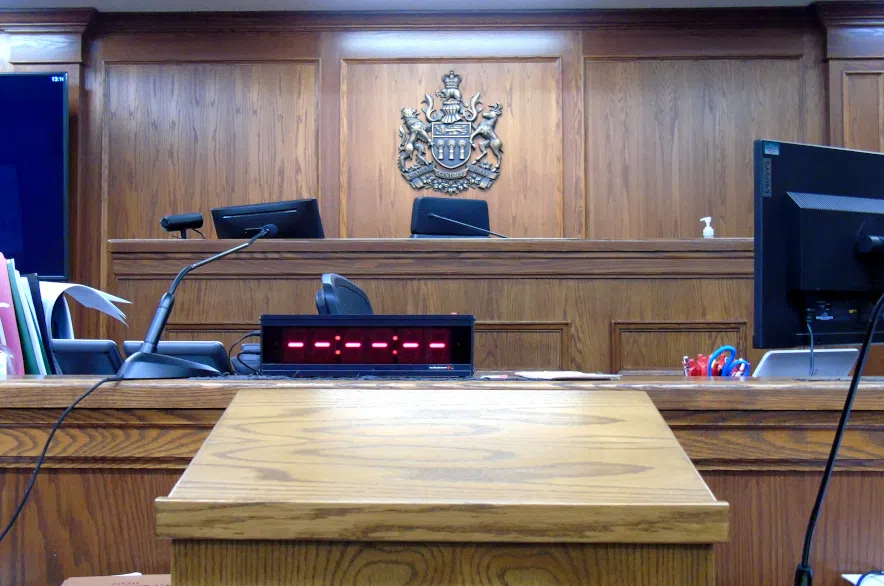A Regina judge took the opportunity to expound on Charter breaches by police as he recently acquitted a woman of refusing to give a breath sample.
According to the court decision from Judge James Rybchuk, Victoria Kopperud was driving to work one day last year. Another driver called RCMP on Highway 6 just north of Regina over Kopperud’s driving.
The person reported the driving as erratic, saying the vehicle had driven up close behind them and nearly collided with oncoming traffic, then passed them and continued into Regina.
The person stayed on the line with RCMP Constable Rinholm and followed Kopperud’s vehicle into Regina’s industrial area, and said the driving improved.
According to the court documents, Rinholm was east of Regina when he got the call and he drove at high speeds, manoeuvred through traffic, passed vehicles, ran stop signs, used the oncoming lane, and turned left against a red light to try to intercept Kopperud.
The court documents said Rinholm turned off his emergency lights and siren just as he caught up to Kopperud when she was pulling into her work parking lot. He followed her into the lot and parked right behind her as she pulled into a stall — only once she was parked did the officer turn on his emergency lights.
He ordered Kopperud to stay in her vehicle and came up to tell her about the complaint about her driving, which she denied. Rinholm didn’t find any signs of impairment as he was talking to her, and the court heard the officer went away with her paperwork, then when he came back, made the breath demand.
Kopperud asked why that would be necessary if she hadn’t done anything wrong, and Rinholm told her he had the authority to demand a breath sample at any time. He asked her three times and she refused, so she was arrested for refusing a breath sample.
In 2018, the law changed to allow police the right to demand a breath sample from any driver with no grounds required, Mandatory Alcohol Screening.
“There is no other provision in the Criminal Code that allows for such a groundless search and seizure with no articulable cause,” wrote Rybchuk in his decision.
There are only two provisions for making a breath demand now — the officer has to have an approved screening device with them, and the demand must be made in the “lawful exercise of police powers”.
Read More:
Regina police bringing back mandatory alcohol screening in July
Mandatory alcohol screening by police sparks debate in Saskatchewan
Sask. RCMP to start screening for alcohol at all traffic stops
In Saskatchewan, police have wide powers to pull a person over for any reason on public roads, however, the powers don’t extend to private property. That doesn’t mean a person can pull onto private property when they’re being pursued, just that random vehicle stops are limited.
In his decision, Rybchuk in this case explained that an officer must, at least, give their intention to stop a person while they’re on a public road.
“In simpler terms, police cannot stop a vehicle on private property unless they either signalled the driver to stop while still on a public road, or they have a reasonable suspicion the driver committed an offence,” he wrote.
So, in this case, Rybchuk found that Rinholm didn’t have the authority to conduct a random stop on private property, so the stop wasn’t lawful, and therefore the demand for a breath sample wasn’t lawful either.
“Cst. Rinholm’s actions contradicted the typical steps of a traffic stop, as he deactivated his siren and lights upon merging off the Ring Road onto McDonald Street just as he caught up to Ms. Kopperud’s vehicle. Rather than pulling her over at that point, he preferred to observe her driving pattern first to potentially gather grounds for an offence and stop,” wrote Rybchuk.
In a postscript to the decision, Rybchuk made a point of talking about how serious Charter breaches are when officers operate “outside their lawful authority.”
“When police act without legal grounds to arbitrarily detain, unlawfully search and demand evidence, this is not a mere error in judgment or police miscalculation,” he wrote.
“These breaches involve significant infringements on individual liberties, especially when police compel self-incriminating evidence without the individual’s right to counsel. Such instances, far from being inadvertent, transient or technical in nature, mark fundamental departures from the principles that safeguard personal freedoms within our legal system.”
This decision doesn’t set any particular precedents, according to criminal defence lawyer Brady Knight. He said this is the first application in Saskatchewan of refinements from other courts.
He said there are normally broad powers for police to stop any driver on a public road, but judges have been clear to keep that off of private property. He said there are certain situations where the stop could have been lawful.
“If they had observed a violation of the Traffic Safety Act if they had corroborated some of the information that they had received about whether this individual had consumed alcohol, whether this driving was a departure from what would normally be expected on the road,” explained Knight.
Knight said the public needs to know that police have the right to pull you over and demand a breath sample without any explanation or suspicion that you’ve been drinking. However, in this decision, Rybchuk also makes clear that there are some circumstances where police don’t have that power — namely on private property.
“The courts want to very much respect an individual’s Charter rights because, ultimately, that’s what makes us the society that we are — that individuals do have rights, do have protections and that the police also need to be mindful of those,” said Knight.











